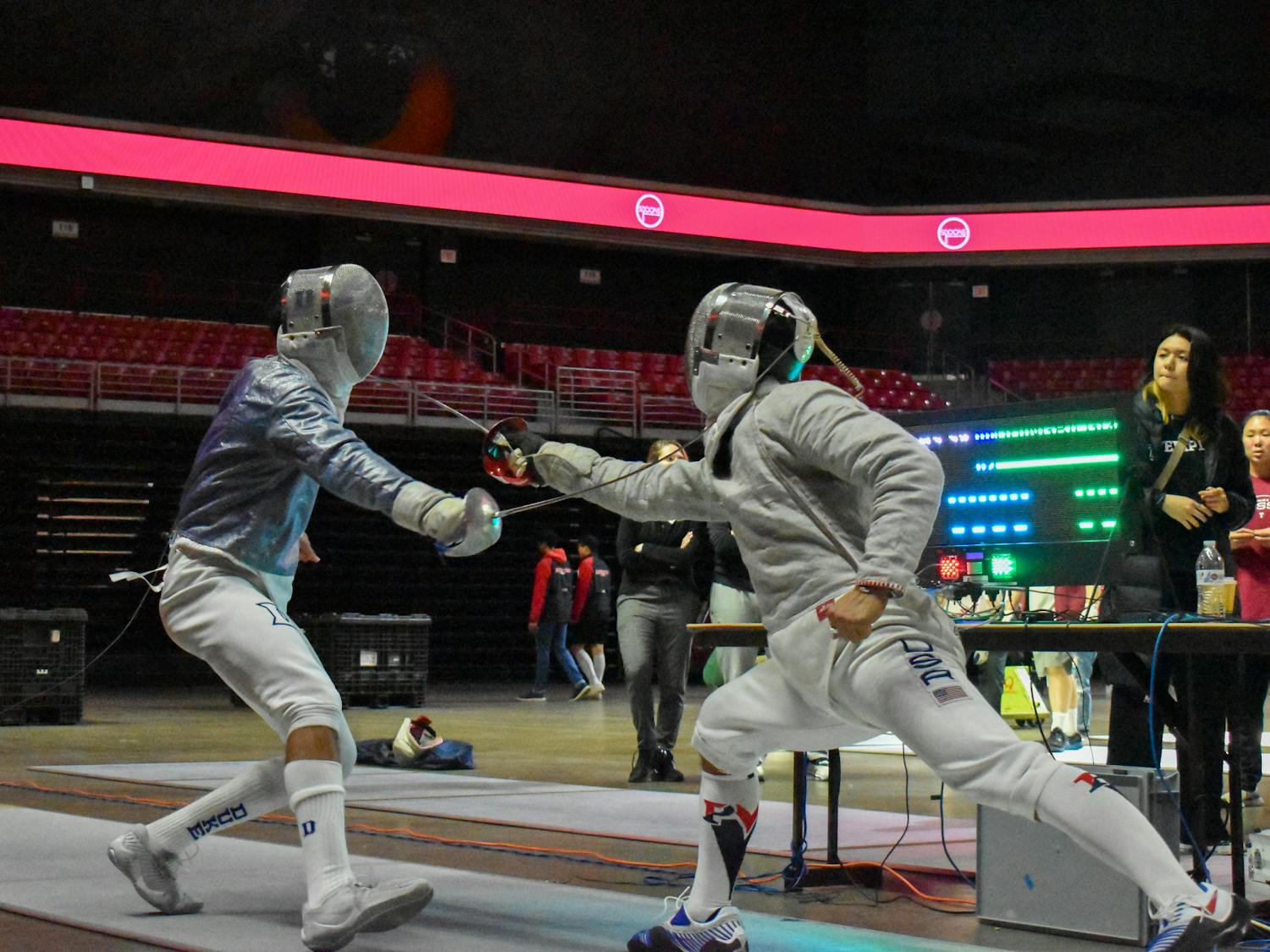Over the past few weeks, our studies of the Ivy League’s recent athletic history have ranged from which schools had the best athletic programs to which individual teams had the best 10-year runs. However, there’s one natural question that pops up from that last one: even if we know which teams were the best over a decade-long span, which teams actually had the most impressive individual years?
In this article, we explore the regular season and postseason runs that have truly been the most spectacular across the Ancient Eight. The Ivy League has more than its fair share of national championships, but how does on compare a deep playoff run in a sport dominated by power-conference teams like basketball or soccer to a title in an Ivy-dominated sport like squash or rowing? Find our answers to that question below.

At first glance, only finishing as one of the nation’s 32 best teams may seem like nothing special. But in baseball, the Ivy League is supposed to be a pushover once the postseason rolls around. In fact, the 2015 Lions are the only Ivy team to win three games in a single NCAA Tournament since Harvard made it to the College World Series in 1974. The most impressive of Columbia’s postseason wins was a 3-0 defeat of regional No. 1 seed Miami in the first game of the Regional Final, where freshman starter Bryce Barr helped shut out the Hurricanes for the only time all season. This incredible run came after Columbia nearly missed the NCAA's, needing to beat fellow 16-4 Ivy finisher Penn in a one-game playoff.

Rowing is often stereotyped as a very “Ivy League” sport, and for the men’s side, that's often true. But NCAA women’s rowing actually hasn’t seen a national champion come from outside the ACC, Big Ten, or Pac-12 since the Bears pulled off the feat seven years ago. This was no Cinderella run, but rather the end of a dynasty. Brown’s title was its seventh in a 13-year span, which still stands as the most championships for any women’s rowing team.

What makes this Cornell team any more special than the teams of 2011 and 2010, which each finished in second place nationally, tied for the best-ever finish for an Ivy wrestling team? Even though it resulted in a lower national finish, the 2012 edition of Cornell wrestling had something no other Ivy team has ever had in the sport: three individual national champs. The most notable of the three was then-junior Kyle Dake at 157 pounds, who proceeded to become the only NCAA wrestler ever to win four national titles in four different weight classes after finishing off the four-peat in 2013. The other two champions were first-time winners in Steve Bosak at 184 and Cam Simaz at 197.
RELATED:
A Decade in Ivy League Sports: Ranking the eight athletic programs
Which Ivy League teams have had the most success over the past decade?

The Ivy League isn’t supposed to compete with the best of the best in the nation’s premier sports, but this Cornell squad was different. Led by current Penn coach Steve Donahue, Cornell’s 27-4 regular season was impressive even during its rare losses, such as a thrilling 71-66 defeat on the road against then-No. 1 Kansas. But it was in the postseason where the real magic happened. Donahue’s team, as a No. 12 seed, took down No. 5 seed Temple and No. 4 Wisconsin by a combined 33 points, before finally falling to a Kentucky squad featuring John Wall, Patrick Patterson, DeMarcus Cousins, and Eric Bledsoe. Cornell was the first Ivy team to win multiple March Madness games since 1979, when Penn faced off against a Magic Johnson-led Michigan State team in the Final Four.

Like in men’s basketball, Ivies just aren’t supposed to hang with top-tier teams in women’s soccer. In the past 10 years, the Ivy League has combined to win six NCAA Tournament games. Five of those six are from Princeton. Three of those five came in 2017, after an impressive regular season in which the Tigers beat two top-20 teams. In the Round of 32, Princeton needed penalty kicks to get by No. 21 NC State, and then it stunned No. 2 UNC in extra time in the Round of 16. The Tigers still stand as the second furthest-advancing Ivy team in any sport with a 64-team playoff bracket, behind only 2004 Princeton women’s soccer’s run to the Final Four.

When a team has won seven national titles in the past 10 years, what makes any single one of them that special? The 2018 version of Harvard women’s squash wasn’t just the country’s best team — it was the country’s best team by a historic margin. Going 15-0 in team competition, the Crimson went a ridiculous 131-4 in individual matches, with their closest margin of victory being 8-1. Incredibly, Harvard swept the entire postseason with three straight 9-0 wins against the other best teams in the country. Harvard was likely the best college women’s squash team in history, and the scariest part is that, with only two seniors graduating, next year’s team should be even better.

This is a case where the numbers should speak for themselves: 30-0 regular seasons don’t happen often for anyone, let alone Ivy League teams. But even after Princeton became the first Ivy men’s or women’s basketball team with a perfect regular season since Penn’s men in 1971, those numbers didn’t speak very loudly to the NCAA selection committee. Princeton was given a No. 8 seed, despite the Tigers being ranked No. 13 in the AP and Coaches’ polls and No. 12 in RPI. It was the worst seed for any unbeaten men’s or women’s Division I team since 1998, and Princeton made national headlines due to its snub. But despite facing a far more difficult road than it deserved, it still became the first Ivy women’s team in 17 years to win an NCAA Tournament game.

Ivy League lacrosse has been nationally elite for a long time; in five of the past 10 seasons, an Ivy men’s program has at least made a national semifinal. But until Yale, none had put it together to win it all since 2001. Led by Tewaaraton Award winner Ben Reeves, Yale dominated the Ancient Eight all year long and gained the national No. 3 seed entering the NCAA Tournament. Once there, the Bulldogs picked it up even further. In the semifinals, Yale jumped out to a 7-0 lead en route to a surprising blowout of No. 2 Albany. And in the championship game, facing a Duke team that had won three titles in this decade alone, the Elis never trailed en route to their first-ever NCAA Championship.

As far as Cinderella stories go, Yale’s got the best one of all. After a good but unspectacular regular season, the Bulldogs snuck into the 16-team NCAA Tournament as the No. 15 seed. The Bulldogs then upset No. 2 Minnesota in overtime in the first round — and that was just the start. After another overtime win over No. 3 UMass Lowell in the semifinals, Yale faced a title match with in-state and fellow ECAC rival, No. 1 Quinnipiac. Despite being blown out in two regular season matchups and in the ECAC Tournament, Yale triumphed when it mattered most, stunning Quinnipiac, 4-0, with three third-period goals. Yale became the only men’s hockey team to ever beat each of the top three seeds in the same tournament, and it stands as the lowest-seeded team to ever win the NCAA men’s hockey title.

Princeton might not have the same “wow” factor that Yale ice hockey’s run had, but that’s simply because the Tigers were a juggernaut all season. Led by three players who would proceed to compete in the 2016 Olympics, the Tigers dominated their regular season, outscoring Ivy opponents 45-1 in seven games and earning the NCAA’s No. 2 overall seed. After handling business in its first three games, Princeton took on No. 1 UNC, winners of six national titles. Despite trailing 2-1 in the second half, Princeton took a lead on a penalty stroke with 10 minutes left and held on to bring home the title. Not only was Princeton the first team outside the ACC to win since 2001 — the Tigers made history by bringing home the Ivy League’s only field hockey national championship, ever.








